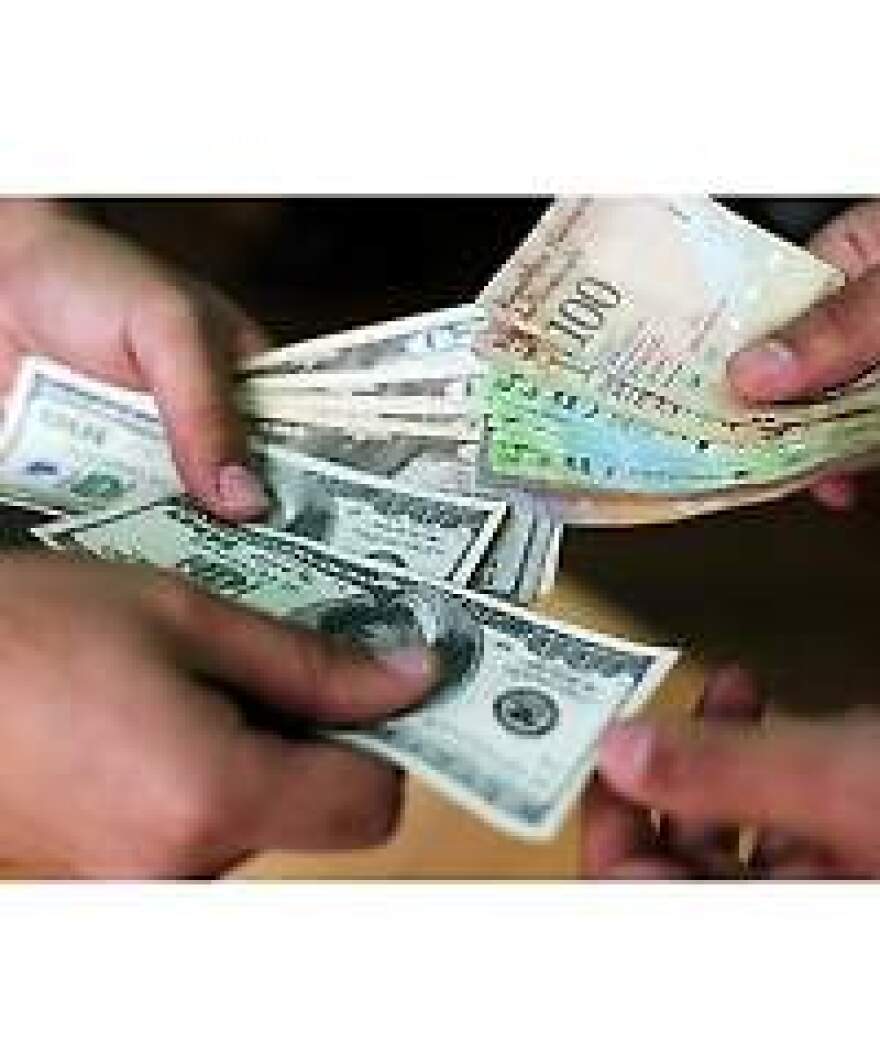What do you do when your country’s foreign reserves are dropping at a rate that would make avid bungee jumpers nauseous? If you’re left-wing Venezuelan President Nicolás Maduro, you take strong, decisive macroeconomic action.
You withhold dollars from Mickey Mouse.
Yessir, you discourage your countrymen from traveling to Florida, by further restricting the amount of dollars they can spend there with their bank credit cards – from $2,500 to $700.
And that’s supposed to help stop the hemorrhaging of dollars from Venezuela, whose foreign reserves have plummeted by an astonishing third over just the past year to $20 billion – a level the Moody’s investor service calls “perilously low.”
Maduro may well consider the move, which his socialist government decreed last week, financially meaningful. Florida, after all, is the most popular destination for Venezuelan tourists: According to the Venezuelan-American Chamber of Commerce in Coral Gables, 600,000 Venezuelans visited the state last year. So clipping $1,800 off their dollar allowance here potentially keeps about $1.1 billion in Venezuela – and even more if they decide it’s not worth it to go at all now.
RELATED: Deja Vu Venezuela: How Rotted Is The Revolution?
But here’s the problem: Those Venezuelans will not stay home. They’ll find other destinations, because their primary motive isn’t to see Mickey – it’s to make money. “If the government is trying to keep dollars in Venezuela,” says Venezuelan-American Chamber President Luis Ramírez, “this really won’t help much.”
Instead, says Ramírez, “it is going to send [Venezuelans] somewhere else. They will go to Houston, Atlanta, New York, but they will still be looking for the currency.” Meaning the greenback.
That’s because Venezuelan consumers and businesses are just as desperate for dollars as their country’s central bank is. And that’s due to the fact that dollars are currently trading for about 11 Venezuelan bolívares at the laughably low official exchange rate – but for about 80 on the more realistic black market.
In Venezuela's wildly distorted currency scenario, having access to dollars means everything.
In that wildly distorted scenario, having access to dollars means everything. And that means hopping on planes to the U.S. or any other place where you can get them, to buy things more cheaply with them and/or to bring them home.
Increasingly, Venezuelans are buying dollars in Florida with credit cards at the controlled, official rate – then taking them back to Venezuela and exchanging them for bolívares at the runaway underground price, making a killing in the process. If that sounds illicit – and it is, technically, on both sides of the Caribbean – no one’s feeling too guilty about it. Many Venezuelans, in fact, consider it a matter of economic survival.
“It’s become too large an incentive for a lot of people,” says Ramírez, especially when Venezuela’s annual inflation rate has hit hyper-inflation altitudes of more than 50 percent.
21st-Century Socialism
Such is the gross economic mismanagement playing out under the “21st-Century socialism” begun under Venezuela’s firebrand President Hugo Chávez, who died last year, and carried on by his acolyte Maduro.
Venezuela has the world’s largest oil reserves. But it has few other exports, which stunts the amount of hard currency coming into the country, and it imports most of its goods, which sucks hard currency out. So does its swelling debt – more and more of its oil production is used to pay off creditors like China – and so do its radical left-wing policies, which enfeeble production and scare away investment.
What Maduro and the Chavistas are competent at is fingering scapegoats for the mess. Such as Florida, which harbors the largest anti-Chavista diaspora and is therefore a target for political potshots – like the 2012 closing of the Venezuelan consulate in Miami as well as last week’s drastic drop in dollar allowance for Venezuelan visitors. Those do little to stop Venezuela’s economic implosion, but they feel chévere, or cool, to Chavismo’s voter base.
And it’s not as if Florida will really feel the kick in the shins. A billion dollars account for less than 2 percent of the state’s $72 billion tourism industry. If anything, such gestures help drive Venezuelan investors, entrepreneurs – and especially real estate buyers – into Florida’s open arms with more serious capital.
In recent years, Venezuelans have joined Brazilians and Argentines as the top foreign purchasers of Miami houses and condos. In 2012, in fact, Venezuelans were were No. 1, accounting for 14 percent of foreign real estate buyers in Miami.
Meanwhile, don’t expect the number of Venezuelan tourists in Florida to fall too sharply. Even if they can’t put as many dollars on their plastic while they’re here, they’ll likely keep coming to make dollars with their gold jewelry – some board flights in Caracas wearing gold chains that would qualify as bullion bricks at Fort Knox – and anything else they can exchange to garner the currency. Not the Mouse. The Money.
Tim Padgett is WLRN's Americas editor. You can read more of his coverage here.






